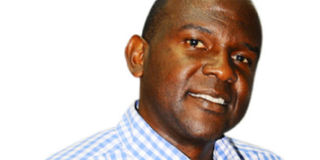Museveni or Bobi Wine: Who has ‘international community’s’ vote?

From as far back as the dawn of independence and self-rule on the African continent to the days of the Cold War, it became acceptable and still remains so that for an African president to come to power, to rule comfortably and safely, they must have a big brother in the so-called ‘international community.’ Plainly put, they must act as a stooge for those all-powerful super power rulers of this world.
The latter countries established military and economic ties with the African country and offered ‘protection’ to the government and president as well.
In case there was an uprising or a threat to the government of an African ally, it was not strange to find a contingent of say French troops flying in to guard ‘strategic government installations’ and ensure that their man stayed in power and maintained their interests of exploiting mineral wealth and other raw materials.
This assurance spoilt many of the African leaders who became incorrigible dictators; overstaying their welcome. The allies in the so-called international community either turned a blind eye or defended them. When they rigged an election, they simply caressed them on the wrist and called for ‘reforms’ in future to guard the nascent democracy.
They would write glowing tributes about those presidents, including rosy statistics of soaring economic growth, progress and promise even when there was nothing to show on the ground. Economic aid to shore up these regimes would also come in thick and fast even where there was incontrovertible evidence that most of the money would end up in the pockets of the president and his cronies to help them stay in power.
This relationship has only intensified with the advent of China as a military and economic superpower hungry for raw materials and land to grow food and settle its large population. (It is notable that the Ugandan Government is now mooting a law to forcefully take over land and hand it over to investors before duly agreeing with its owners.) Imagine if such a law took effect, the beneficiaries would fight tooth and nail to perpetuate the government in power.
So the one who runs an African country should not only have popular support, they must have a clear stand on the economic and strategic interests of the ‘owners of the world;’ the ones who can remove and kill a hitherto ‘powerful’ Col Muammar Gaddafi when he becomes a threat to their interests.
Thus when Kyadondo East MP Robert Kyagulanyi Sentamu, aka Bobi Wine, rode on a crest of popularity and became MP, capturing the imagination of so many across the country, the office of the President looked feasible to him. When he travelled abroad and got coverage on several global media outlets, with his name featuring in the UK House of Commons and the US Congress, his supporters claimed he had secured the ‘backing’ of the most influential powers and was ready to take on Museveni with this revered support.
Bobi Wine might be the popular choice, but Museveni is still the most pragmatic bet of all the politicians not only in Uganda, but in the region. He is tried and tested. You do not change a winning team merely because the new kid is ‘merely’ talking about Western values of democracy and freedom.
Museveni is the go-to person on matters of security and stability in the region from Congo, South Sudan, Kenya, Somalia. Having a reliable points man in a resource rich, stable Great Lakes region is a dream of the exploitative and predatory opportunistic agenda of the international community. Museveni has proved to be a reliable ally especially in often dubious ‘war on terror; that he will, without hesitation, put Uganda boots on the ground. This saves, for example, the US from the sight and repercussions of receiving body bags packed with their treasured children.
Uganda’s so-called ‘open arm refugee policy is another of those that work in Museveni’s favour. If Uganda closed her borders to the people displaced by Congolese warlords whose major purpose is to drive people off their land in the DRC and hand it over to global blood mineral prospectors, dealers and thieves, many of whom serve Western interests, you would have a huge conflagration and civil war in that country.
Those Western interests are invaluably served be it implicitly or explicitly by the refugee policy of the Museveni government. As such they would still want to have him around whatever his democratic credentials.
In economic terms, it is significant that Museveni moved away from the left wing control economic policies that he harboured when he had just come to power in the late ‘80s. Uganda is now touted as one of the best investment destinations in the world.
Investors are given huge tax breaks, free land, interest free loans, repatriate their profits with ease and have unfettered access to the natural resources of the country. The economy is a widely treasured open foreigner’s paradise despite the glaring poverty and deprivation of the locals. A man like Museveni who ensures that the military and economic interests of the ‘international community’ are well taken care of is difficult to let go or dislodge even if a popular alternative like Bobi Wine that talks eloquently about the Western values of ‘freedom’ presents themselves.
That is why it is safe to argue that the warming of the media and some political players in the West towards Bobi Wine may actually be an act of blackmail to Museveni, the assured blue eyed boy of the West. It might be a cynical Oliver Twistian way of asking him for more at a time when Uganda’s oil is about to start flowing.
Mr Sengoba is a commentator on political
and social issues. [email protected]
Twitter:@nsengoba




